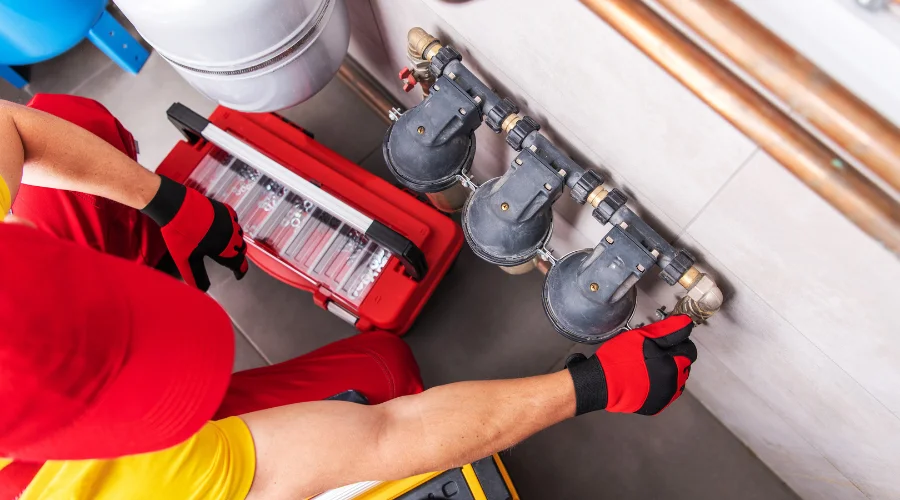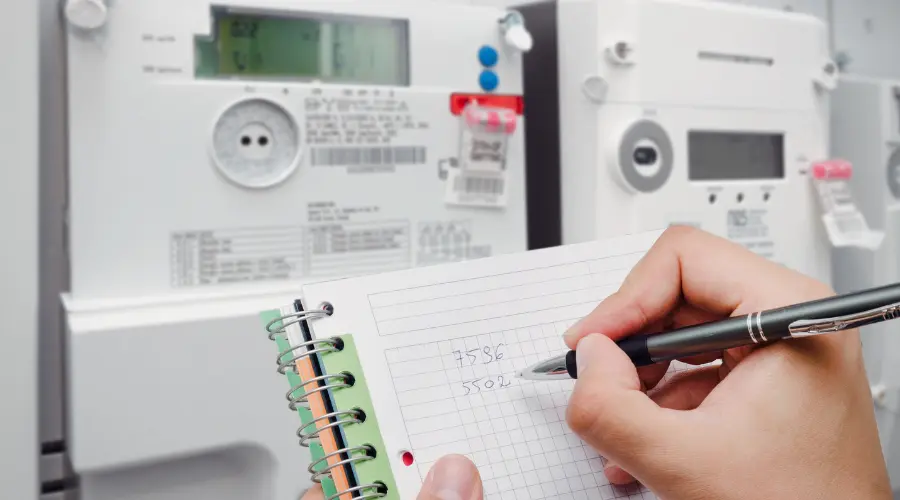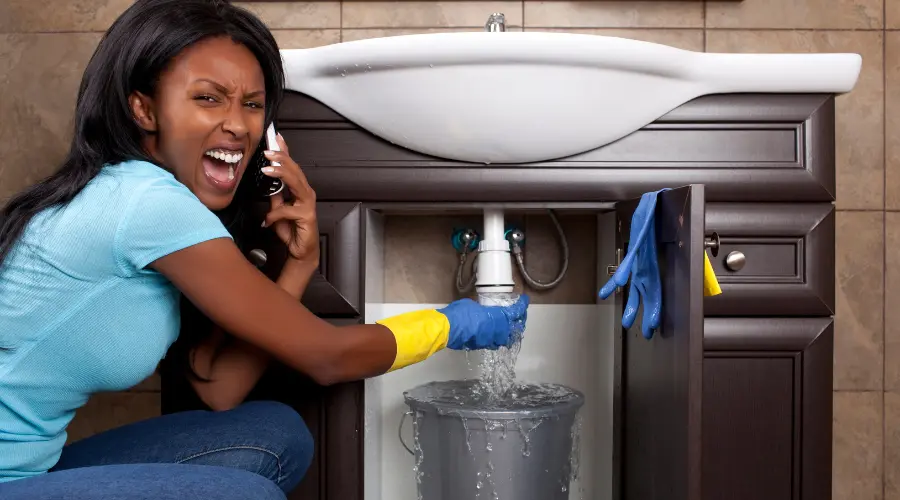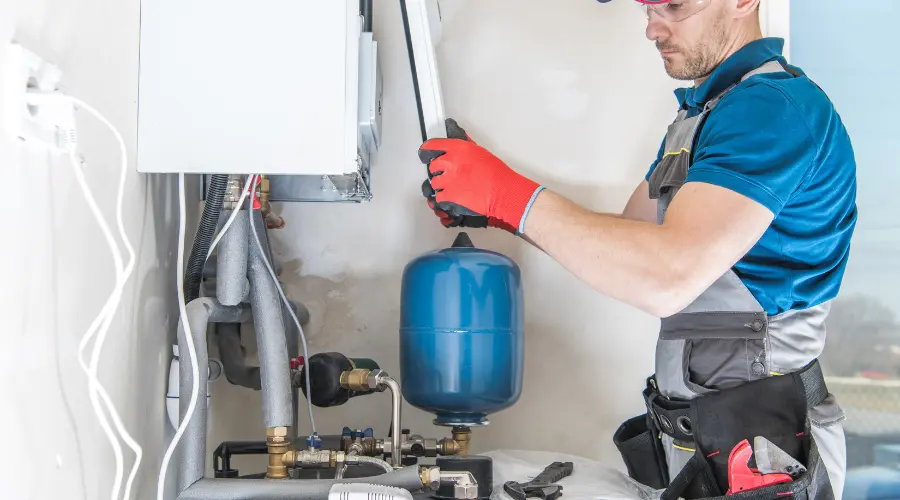Selecting the right pipe material is essential for a reliable and long-lasting plumbing system. This guide explores the advantages and disadvantages of common pipe materials to assist you in making an informed decision.
Key Takeaways
- Copper Pipes: Highly durable and corrosion-resistant, suitable for various applications, but come with a higher upfront cost and potential theft risk due to their scrap value.
- PVC Pipes: Cost-effective, lightweight, and resistant to chemicals and corrosion; however, they can become brittle over time and are not ideal for extreme temperature conditions.
- PEX Pipes: Flexible, easy to install, and resistant to freezing and corrosion, with fewer joints reducing leak risks. Concerns about chemical leaching exist, but they meet safety standards.
- Galvanized Steel Pipes: Strong and suitable for high-pressure applications, but the zinc coating can wear off over time, leading to rust, and installation can be challenging due to their weight and rigidity.
Choosing the appropriate pipe material is crucial for a durable and efficient plumbing system. Consider each material’s benefits and drawbacks in relation to your specific needs and budget.
Copper Pipes
Benefits
- Durability: Copper pipes are known for their long lifespan and ability to withstand high pressures, making them a reliable choice for both residential and commercial plumbing systems.
- Corrosion Resistance: They resist corrosion and do not degrade over time, ensuring water quality remains unaffected.
- Versatility: Suitable for both hot and cold water applications, copper pipes can be used in various plumbing scenarios.
Drawbacks
- Higher Cost: The initial investment in copper pipes is higher compared to alternative materials, which may be prohibitive for those with limited resources.
- Theft Risk: The scrap value of copper makes these pipes a target for theft, especially in unoccupied or construction sites. Security measures may be necessary to mitigate this risk.
Despite the higher upfront cost and potential theft risk, copper pipes’ durability and reliability make them a preferred choice for those seeking a long-lasting plumbing solution.
Polyvinyl Chloride (PVC) Pipes
Benefits
- Affordability: PVC pipes are known for their cost-effectiveness, providing a budget-friendly option for plumbing projects without compromising quality.
- Chemical and Corrosion Resistance: PVC pipes don’t easily get affected by chemicals or rust due to their unique composition, enhancing their longevity and performance, especially in environments with harsh water or chemical conditions.
- Lightweight and Easy Installation: Being lightweight, PVC pipes are easy to handle and install, reducing labor costs and time during construction.
Drawbacks
- Brittleness Over Time: Extended exposure to high heat and sunlight can cause PVC pipes to become brittle, potentially leading to cracks or breakage.
- Temperature Limitations: PVC pipes may not be suitable for applications involving extremely high or low temperatures, as they can become brittle in cold climates or soften in intense heat.
PVC pipes offer an affordable and versatile solution for many plumbing needs, but it’s important to consider environmental factors to ensure their longevity.
Cross-linked Polyethylene (PEX) Pipes
Benefits
- Flexibility and Ease of Installation: PEX pipes are flexible, allowing them to navigate around obstacles without the need for numerous fittings, simplifying installation and reducing labor costs.
- Resistance to Freezing and Corrosion: The unique structure of PEX pipes makes them resistant to freezing temperatures and corrosion, making them ideal for cold climates and areas with corrosive water conditions.
- Fewer Joints: The flexibility of PEX pipes often results in fewer joints, reducing the risk of leaks and enhancing the reliability of the plumbing system.
Drawbacks
- Potential for Chemical Leaching: There have been concerns about the possibility of chemicals leaching from PEX pipes into the water supply. However, PEX pipes typically comply with safety standards, and the risk is minimal under normal conditions.
PEX pipes are a modern solution offering flexibility and ease of installation, with benefits that often outweigh the potential drawbacks when installed correctly.
Galvanized Steel Pipes
Benefits
- Strength and Durability: Galvanized steel pipes are known for their strength and durability, making them suitable for high-pressure applications.
- Corrosion Resistance: The zinc coating provides a barrier against corrosion, extending the lifespan of the pipes in environments where exposure to moisture and corrosive elements is a concern.
Drawbacks
- Zinc Coating Wear: Over time, the protective zinc coating can wear off due to abrasion or natural aging, leading to rust and potential pipe degradation.
- Installation Challenges: The weight and rigidity of galvanized steel pipes can make installation more complex, often requiring specialized tools and equipment.
While galvanized steel pipes offer strength and durability, considerations regarding potential rust and installation complexity are important when choosing this material.
Frequently Asked Questions (FAQ)
Q1: What factors should I consider when choosing a pipe material?
A: Consider factors such as durability, cost, corrosion resistance, ease of installation, and suitability for the specific application and environmental conditions.
Q2: Are copper pipes worth the higher cost?
A: Many argue that the long-term benefits of copper pipes, such as durability and low maintenance, often outweigh the upfront expenses.
Q3: Can PVC pipes be used for hot water lines?
A: PVC pipes are generally not recommended for hot water lines due to their temperature limitations; CPVC pipes are a better alternative for hot water applications.
Q4: Is PEX piping safe for drinking water?
A: PEX pipes meet safety standards for drinking water, though some concerns about chemical leaching exist. Ensuring proper installation and using certified PEX products can mitigate these concerns.
Q5: How can I prevent galvanized steel pipes from rusting?
A: Regular maintenance and inspections can help identify areas where the zinc coating has worn off, allowing for timely repairs or replacements to prevent rusting.
CBJ Plumbers – Your Trusted Plumbing Experts
At CBJ Plumbers, we take pride in delivering high-quality plumbing solutions with professionalism and reliability. Whether it’s a minor repair or a major installation, our experienced team is ready to handle all your plumbing needs efficiently.





